Written by Mohammed Ismail
Alhamdulillah, despite the extra difficulties presented with the Covid-19 pandemic, Eid was still a time of joy here in Gaza.
Families were able to celebrate together, children enjoyed new clothes and many people were able to safely go to the mosque to attend Eid prayers (subject to special guidelines).
Here at Islamic Relief, we were also delighted to be able to support children and communities during this special time.
Take a look at how we celebrated Eid Al-Fitr here in the Gaza Strip, thanks to Mohammed Al Zaanoun, Photographer and Multimedia Developer at Islamic Relief Palestine.
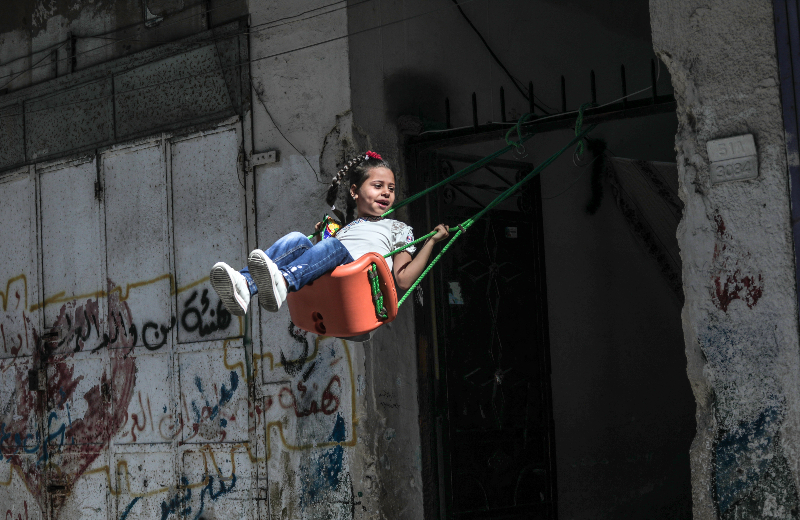
Community life has slowed down in the Gaza Strip down due to the Coronavirus pandemic. Supply chains have slowed down, forcing local businesses to close, whilst schools have also shut and playgrounds remain eerily quiet.
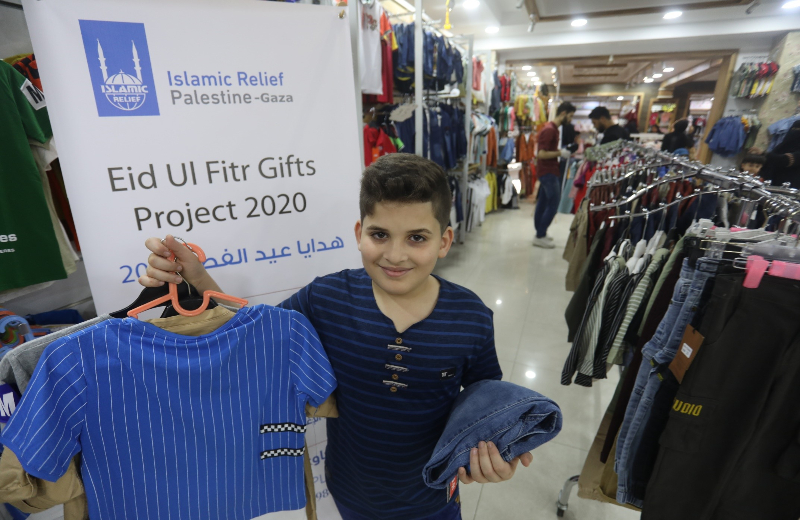
Many families could not afford new clothes for their children this Eid – especially mothers/carers relying on daily wages in the current period of increased economic stability. Islamic Relief provided Eid clothes for 570 orphaned children, including 139 children living with a disability.
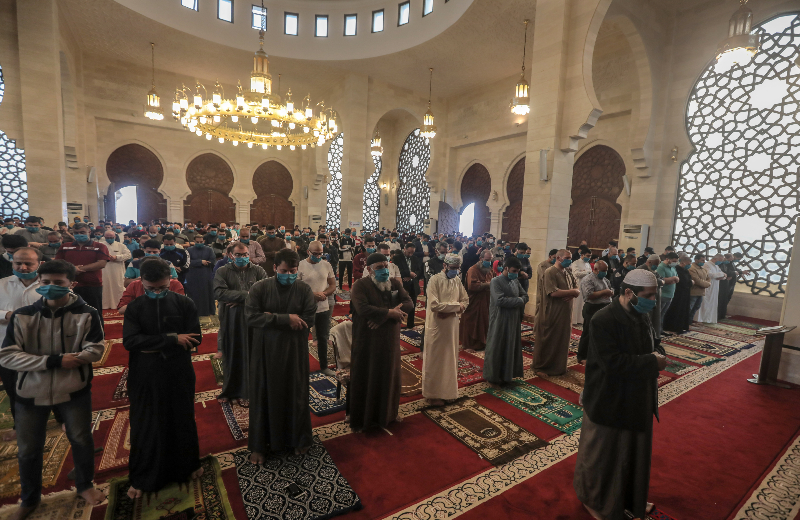
Alhamdulillah, authorities in Gaza relaxed the lock-down a little bit and allowed Eid prayers in open spaces with extra safety precautions. This included using your own prayer mats, wearing facemasks, socially distancing between prayers and not allowing children and older people who suffer from chronic diseases to attend prayers.
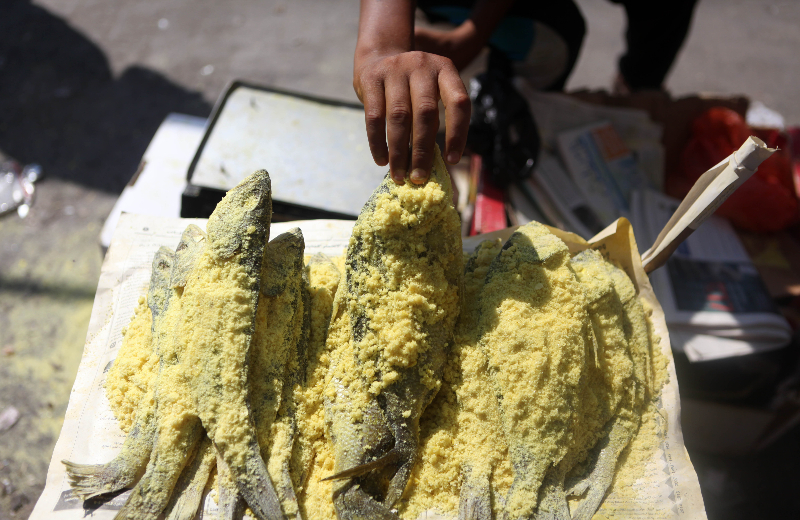
Here in Gaza, there are two main dishes we eat for Eid breakfast. We eat either Fesikh (salted fish) or Sumaghiyyeh (made with sumac, lentils, chard leaves and tahini). Families each follow their own tradition.
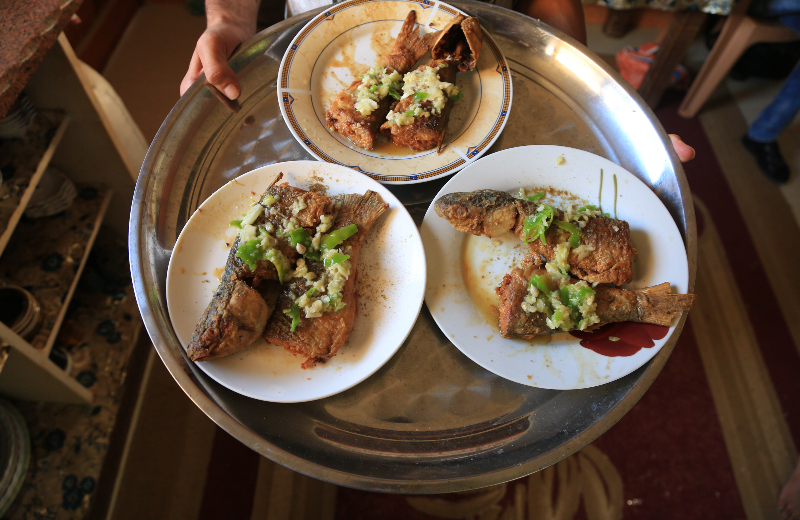
We buy pre-salted fish and cook it at home. However, some families prepare homemade Fesikh. They buy the fish, place it in big jars and layer the fish with salt, leaving it for around one to five months. The day before Eid, they then soak the fish in water before cooking it. We usually deep-fry the fish on Eid morning and serve it with Palestinian Galayet Bandora (stir-fried tomatoes with onion, garlic and serrano peppers).
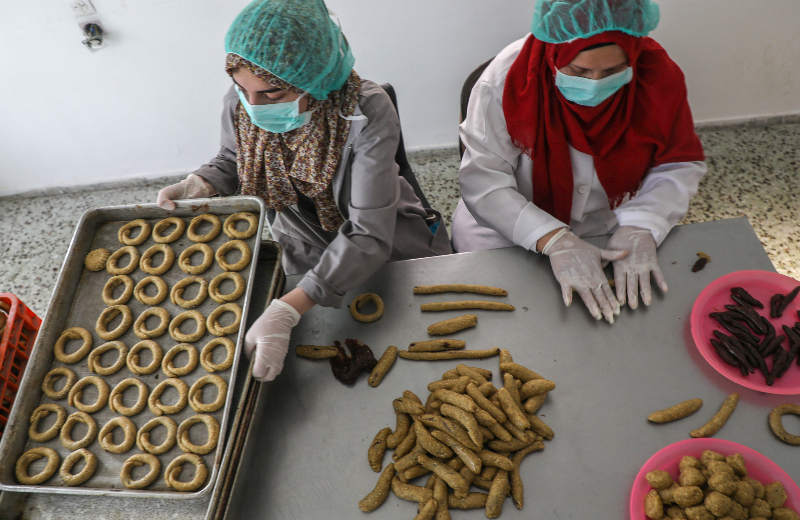
Eid would not be the same without Eid sweets! They’re a big tradition. We love to eat Ka’ek and Maamoul which are made with dough stuffed with dates. Ka’ek are circular in shape, whilst Maamoul are similar to stuffed cookies. The secret is in the dough itself. Families use different recipes and secretly compete to make the best sweets!
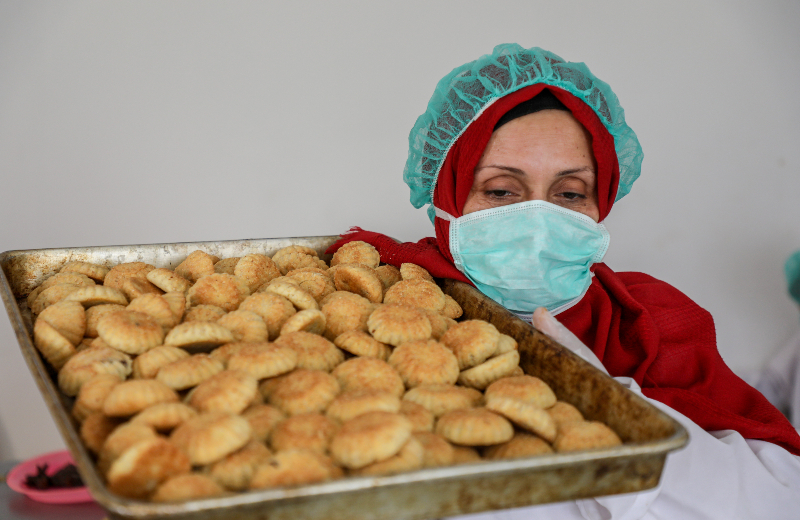
In my family, my mother starts preparing these sweets early in October when the fresh dates season starts. My sisters and wife help too as a lot of sweets are made! Sweets are given to friends, family and neighbours. Women typically prepare the sweets ready to be served during Eid and their male relatives (fathers, brothers, uncles and cousins) visit them and give them Eidiya (money).
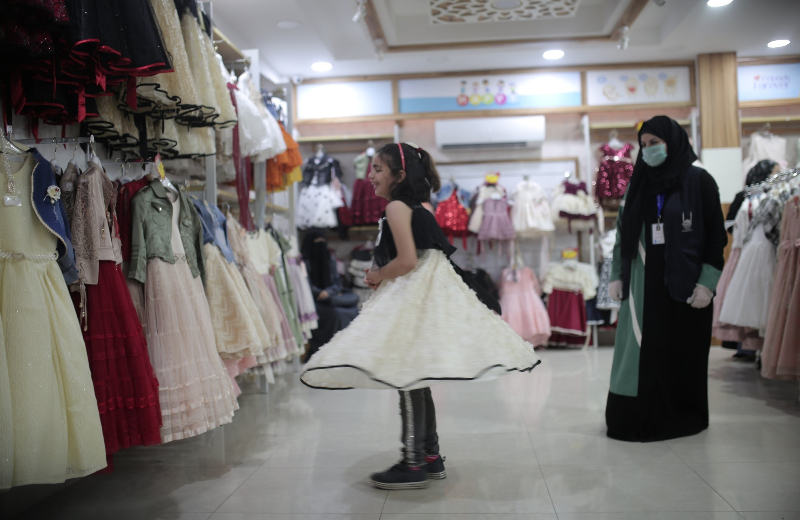
Eid is always a joyous occasion here in Gaza. Children are happy with their new clothes and Eidiya, families enjoy sharing sweets and home-cooked dishes and the whole community is overjoyed for having managed to fast the whole month of Ramadan and reach the blessed days of Eid!
Happy belated Eid to everyone from Islamic Relief Palestine!